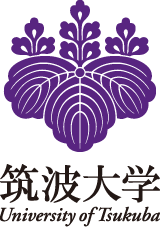01Research overview
Lymphoma, which includes Hodgkin’s lymphoma, non-Hodgkin’s lymphoma, myeloma and some leukemias, is the fifth most common cancer in both men and women, affecting patients of all ages. Advances in diagnostic accuracy and improvements in treatment have resulted in better overall survival for lymphoma patients. Lymphoma in particular, can be cured with systemic therapy, even when it is widely disseminated. However, current diagnostic tests cannot identify with high accuracy the subset of patients who are likely to succumb to the disease. New therapeutic approaches are needed to address the unmet classic need to overcome treatment resistance. It is widely accepted that deciphering the underlying molecular heterogeneity in order to tailor treatments to individual patient tumor cell characteristics will lead to further treatment improvements. This personalized treatment promises to cure lymphatic cancers more effectively, eliminate the need for expensive second-line treatments, and reduce global healthcare costs.
Discovery studies published by the Steidl group over the past decade have contributed significantly to the concept that certain lymphomas disrupt physiological mechanisms of immune privilege in favor of malignant tumor growth. Our data and those of others demonstrate that specific somatic mutations (e.g. CIITA, PDL1/2, B2M, TMEM30A) underlie altered immune-cell cross-talk, somatically acquired immune privilege and are associated with patient survival. While “evasion of immune destruction” is increasingly recognized as a hallmark of malignancy, targeting this aspect of oncogenesis is only now finally picking up speed in this field, along with the need to understand immunobiology at an unprecedented level. As evidence, recent data have shown that immune checkpoint inhibitors and chimeric antigen receptor T (CART) cells can be effective agents in many lymphomas by targeting and modifying effector cell function in the microenvironment.
To meet this scientific imperative, BCCancer and TMRC of University of Tsukuba combines the unique features of their respective resources to create an international research hub capable of disseminating the latest findings in a wide range of hematological fields (clinical oncology, cancer biology, genomics, pathology, computer science, and health economics) to the world.
02Education
The International Education and Research Laboratory program provides an attractive training environment for motivated graduate students and post-doctoral fellows who aspire to an independent research career in the field of translational cancer research. During this program, young researchers from BCCancer and University of Tsukuba will exchange views and deepen discussions through regular meetings. The program also helps young researchers to give oral presentations at national and international conferences to improve their scientific communication skills and in the future, to build a cooperative framework for their independent careers.
-

- Research Division Leader
- Professor Christian Steidl


